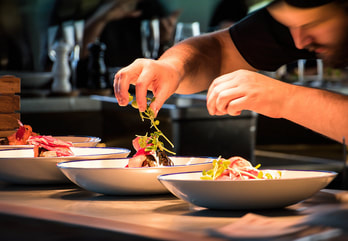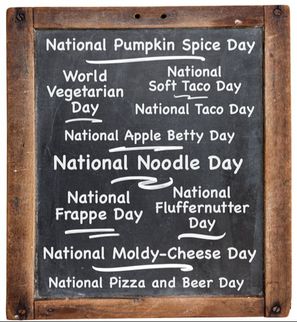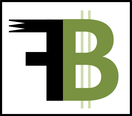 Food costs increase. Rent increases. Labor increases. It’s safe to assume that, over time, your cost of doing business will inevitably go up. When this happens, you have two choices: increase sales, or cut costs elsewhere to offset the rising area. Neither option will bode well with your customer base, but both fare better than the third choice, which is continue as usual until your operation crashes and burns. Whichever route you decide to take, however, it is imperative to communicate the change with your loyalists. Being proactive in times of potential customer setbacks will not only save otherwise lost relationships, but also have potential to actually strengthen your bond with your strongest advocates. Here are some example scenarios where restaurants can stand out during tough times: Communicating Price Increases Restaurant X is a well-known sandwich shop that has attracted a cult-like local following for the past three decades. Sadly, their landlord doesn’t share the same sentimental attachment and demands a significant rent increase. Restaurant X does the math and realizes that based on current sales, it can’t afford these new costs. They have to raise sandwich prices by $1 each, roughly a 15% bump. Restaurant X decides to be up-front with its customers, many of whom have come through its doors for years on end. They post a sign on their menu above the counter that reads something like this: “You’ve probably noticed that our sandwich prices have gone up. We wish we didn’t have to do this either, but our rent went up, and this is the only way for us to stay in business and continue our dream of serving you every day. Thank you and let us know if we can answer any questions.” Simple and to the point, without causing any unnecessary drama with the landlord. Will this approach prevent alienation from every customer? Likely not, but it’ll certainly minimize the bleeding. By hearing the news straight from the horse’s mouth, Restaurant X has halted any false accusations from spreading around its price increases. "Much better to tell your loyalists the story in the way you want it to be told rather than have them make up a defamatory story in their minds." Alternatively, and to supplement the first approach, if Restaurant X doesn’t want to alert every customer [i.e. first-timers] that they used to have lower prices, then it’s best to reach their loyalists through other channels. Email lists and social media pages are prime for these types of announcements.
Communicating Menu Changes Personal opinion, but always opt for price increases before cost cutting, barring true inefficiencies or redundancies in your operations. Your brand is built around an enjoyable, reliable product and experience, and detracting from taste, portion size or ambiance are all one-way tickets to destroying your brand. This said, sometimes a menu change is necessary for reasons out of your control. Restaurant Z sells a very popular almond-crusted salmon. Drought conditions, however, have made almonds a very unpopular ingredient, especially with the owners of Restaurant Z, who are strong environmental advocates. They decide to change the dish to herb-crusted salmon, knowing that this will create some noticeable backlash. In their daily pre-service staff meeting, the owners discuss the change with managers and servers, and train the servers on an opening dialogue and anticipated FAQ’s that loyalists will likely have regarding the change. The servers are now fully equipped with the ability to be forthcoming about a change in a popular menu item and how it aligns with the environment and what the restaurant stands for in the end. Just like with the previous example, this approach won’t please everyone, but will surely help your customers get on the same page and empathize with the decision. Much better to tell your loyalists the story in the way you want it to be told rather than have them make up a defamatory story in their minds. These approaches are largely interchangeable, but fall under the same central themes:
Communicating less-than-ideal matters isn’t the most comfortable thing, but in the same way that the success of a romantic relationship depends on communication, so does that of your business
0 Comments
 Holiday prix fixe menus. Celebrity chef takeovers. Special pop-ups. Weekly, monthly and quarterly special menu pairing dinners. Each of these novelties present tremendous value in its own right, especially in generating buzz amongst the foodie community, but are any of them right for you? These events require equally tremendous investment toward planning and, in some cases, funding. So, are they worth the cost? In order to determine whether a special event is worth your while, ask yourself the following questions:
Once you have a solid grasp on your goals and vision behind the event, it’s time to plan out the logistics necessary to make the event known and run smoothly for all guests and staff involved. Train your kitchen staff. "Think of it like planning a wedding: you’ll want a save-the-date, an invitation and a few periodic updates leading up to the big day" Execution is critical in these kinds of special events, especially considering that they often demand higher prices and attract hypercritical guests. If you have any new recipes, be sure to dedicate several days to training your kitchen staff in preparation, plating and service of these dishes. If taste, presentation and timing are critical in an ordinary restaurant setting, they are several times more important in special event settings.
Set up and decorate accordingly. You want your restaurant to look different during a special event. At a minimum there should be signage at the entrance and collateral on the tables that speaks to the event. From there, the more different the event is than your usual service period, the more different the venue should look. Rearranging tables, new place settings and décor are common considerations, as are novelties such as DJ booths and stages, where various stakeholders can make announcements. Spread the word in advance and often. Start your marketing efforts at least three months before the event is set to take place. Target your loyalists first, to both get them onboard and assess any commentary on their end—your customers likely know your brand better than you think, and upon hearing about a special event they could provide useful insight to improve the event offerings. After your loyalists, including messaging on your existing social media, email and other in-house channels, targeting those in your community that would be most receptive to the event. If you’re doing a menu pairing, then perhaps a partnership with the local wine club is in order. If a celebrity chef is coming in, then an arrangement where they post to their channels is essential to your event’s success. Be mindful that the initial blast is just the first step. Continue messaging to your target audience on a regular basis, increasing frequency as the event draws closer. You don’t want to bombard them, of course, but rather gently remind them every so often. Think of it like planning a wedding: you’ll want a save-the-date, an invitation and a few periodic updates leading up to the big day. Bring it back to the experience. Experiential marketing is certainly on the rise, and in the case of restaurants it kills two birds with one stone. Special events allow new and different people to come in and experience your product in a distinct way that directly links back to your business. These events can be carried out independently or as part of a series, but should be spaced out far enough so that each one feels special in its own right and doesn’t detract from your core business. Limitless event opportunities exist, and serve as valuable assets so long as they align with your individual goals.  National Doughnut Day. National Cheeseburger Day. National Tequila Day. National Chocolate-Covered Bacon Day. The list goes on. If you’re in the restaurant business, there’s an overwhelming chance that some of these faux food holidays have made their way onto your plate. Two questions arise: how to leverage these holidays to your advantage, and more importantly, whether the attempt is worth it in the first place. Do Faux Food Holidays Matter? The short answer is that faux food holidays can be a fun business booster for both new customers and loyalists, so long as you make a big enough commitment and market your efforts correctly. Easier said than done, which is why if you’re not prepared to sink a lot of time and resources into a faux holiday menu and/or event, chances are that you won’t see the positive ROI you’re looking for. If you’re thinking about pulling the trigger for a faux food holiday, consider these points:
Getting Started If you are dedicated to ‘celebrating’ a faux food holiday, target one that at least has broader appeal. A gastropub will have a much better time making the most of National Burger Day than they would National Shrimp n Grits Day. Bars can do a lot more with National Rum Day than National Daiquiri Day. Second, paint a clear picture of what you want your ‘celebration’ to look like. Here’s some pointers on that end:
From there, getting the word out is imperative, otherwise you’ve gone through all that effort just to have people who would otherwise pay full price stumble through your front door and take advantage of the discount. "These tactics only work if the holiday and promotion are relevant to your brand" How to Run Marketing for Faux Food Holidays
Your marketing plan is entirely dependent on the type of promotion you’ve decided to create. In any case, be sure to have that plan set 3–6 months in advance and communicate with all your stakeholders—chefs and front-of-house staff, managers, investors, etc.—to both fill them in on your plans and leverage their own networks for additional reach. From there, consider a few options:
These tactics should provide valuable assistance should you decide to embark on a faux food holiday endeavor. At their core, however, these tactics only work if the holiday and promotion are relevant to your brand and can actually generate value for your business. |
AuthorBenjamin Brown is a seasoned restaurant writer and hospitality consultant, serving up SoCal's hottest food news and reviews. Categories
All
Archives
June 2021
@Foodie_Biz |
|
Home
About
Blog
Consulting Tips
Contact
Legal
|
Foodie Biz provides restaurant news and reviews for the food community, as well as consulting advice for restaurant owners and other hospitality professionals.
Contact Foodie Biz for media opportunities and freelance consulting projects. Contact Foodie Biz |



